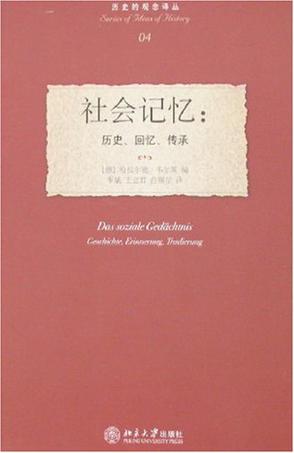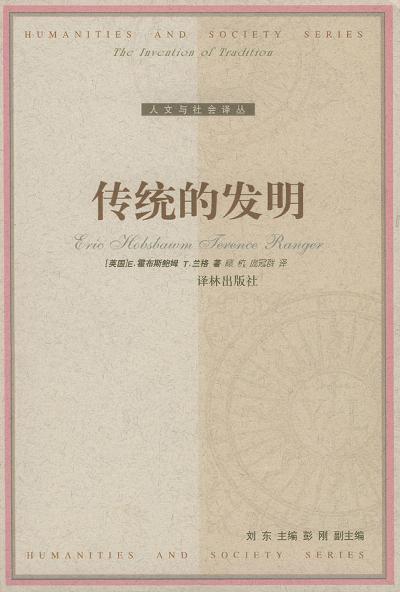欢迎来到相识电子书!
标签:社会记忆
-
The Temple of Memories
This study focuses on the politics of memory in the village of Dachuan in northwest China, in which 85 percent of the villagers are sur named Kong and believe themselves to be descendants of Confucius. It recounts both how this proud community was subjected to intense suffering during the Maoist era, culminating in its forcible resettlement in December 1960 to make way for the construction of a major hydroelectric dam, and how the village eventually sought recovery through the commemoration of that suffering and the revival of a redefined religion. Before 1949, the Kongs had dominated their area because of their political influence, wealth, and, above all, their identification with Confucius, whose precepts underlay so much of the Chinese ethical and political tradition. After the Communists came to power in 1949, these people, as a literal embodiment of the Confucian heritage, became prime targets for Maoist political campaigns attacking the traditional order, from land reform to the “Criticize Confucius” movement. Many villagers were arrested, three were beheaded, and others died in labor camps. When the villagers were forced to hastily abandon their homes and the village temple, they had time to disinter only the bones of their closest family members; the tombs of earlier generations were destroyed by construction workers for the dam. --------------------------------------------------------------------------------------------- Review "One of the best local ethnographies to date on post-reform China. . . . Conceptually sophisticated yet undiminished by unnecessary jargon, the book provides one of the most readable and intelligently framed accounts of change and continuity at the local level in China." —Journal of Asian Studies "Anthropologists and historians will find themselves rewarded by this nuanced examination of social memory, ritual life, and the traumatic recent history of a remarkable village."—China Review International "This gem of a book takes the study of Chinese village culture to new levels of theoretical sophistication, ethnographic nuance and literary evocativeness. . . . There are many fine books that tell similar stories of the devastation of rural communities during the Maoist era. Dachuan is different only in that the depth of its tragedy was several degrees worse than most. But what makes Jun Jing's book unique is his discovery of a way to probe the meaning of such a history for the villagers."—China Quarterly "All audiences can enjoy the universal subjects of the book—children and food. . . . Feeding China's Little Emperor's is useful both for anthropologists or those looking at social change over the last few decades."—The China Business Review "In 1961 the entire village of Dachuan was destroyed when it was submerged under a reservoir created by a newly constructed hydroelectric dam. . . . In Jun Jing's beautifully written account, The Temple of Memories, he reveals how the villagers tra -
社会记忆
人的经验是可以跨代传递的,建筑、景色、声响、气味和触觉印象等等本身也承载着历史和回忆。回忆是如何进行的,是如何传承的?在此过程中,日常的象征性和社会性实践起到什么样的作用? 记忆问题的研究,在西方学界已经有二十多年的探索。本书是来自历史学、传播学、社会心理学和神经心理学等学科的国际学者跨学科合作的成果,历史和回忆之间的复杂关系是本书研讨的核心,他们提出了“社会记忆”这一概念,作为对文化记忆和沟通记忆的补充,集中研讨了无意图地传承历史的形式和实践。 作者们初次尝试提供一种有关“社会记忆”的理论,为考察进行回忆和忘却的社会组织打开了一个崭新的视角。 -
传统的发明
简介: 本书由六个个案研究构成,分别研究威尔士的民族服装、苏格兰的典籍再造、英国皇家仪式变迁、英国统治下印度庆典礼仪的变化、非洲民族对英国中产阶级生活方式的模仿,以及1870—1914年英、法、德三国民族节日和大众文化方面的变化。作者用翔实的材料与生动的叙述向我们揭示,传统不是古代流传下来的不变的陈迹,而是当代人活生生的创造;那些影响我们日常生活的、表面上久远的传统,其实只有很短暂的历史;我们一直处于而且不得不处于发明传统的状态中,只不过在现代,这种发明变得更加快速而已。 导读: 这是本年度我们看到的最有激发力的史学著作。 ——《今日史学》 这本书的核心论点是:目前欧洲人所热衷的那些传统,至多只能追溯到十九世纪末。像苏格兰的格子呢、英国王室的浮夸等等,这些现象远没有传说的那么古老,它们只能追溯到维多利亚时代。更有趣的是,许多备受赞美的传统竟然是舶来品。 就算如此,这样一种对“传说”真理的发现又有什么意义?它会使我们不再珍视我们的传统吗?不会。传统当然不全是真理。许多传统的确含有谎言的成分,但是不断和重复会使它们变得珍贵与崇高。关键不在于它们曾经是谎言,而在于它们从谎言变为传说的过程。 ———亚马逊评论
热门标签
下载排行榜
- 1 梦的解析:最佳译本
- 2 李鸿章全传
- 3 淡定的智慧
- 4 心理操控术
- 5 哈佛口才课
- 6 俗世奇人
- 7 日瓦戈医生
- 8 笑死你的逻辑学
- 9 历史老师没教过的历史
- 10 1分钟和陌生人成为朋友



